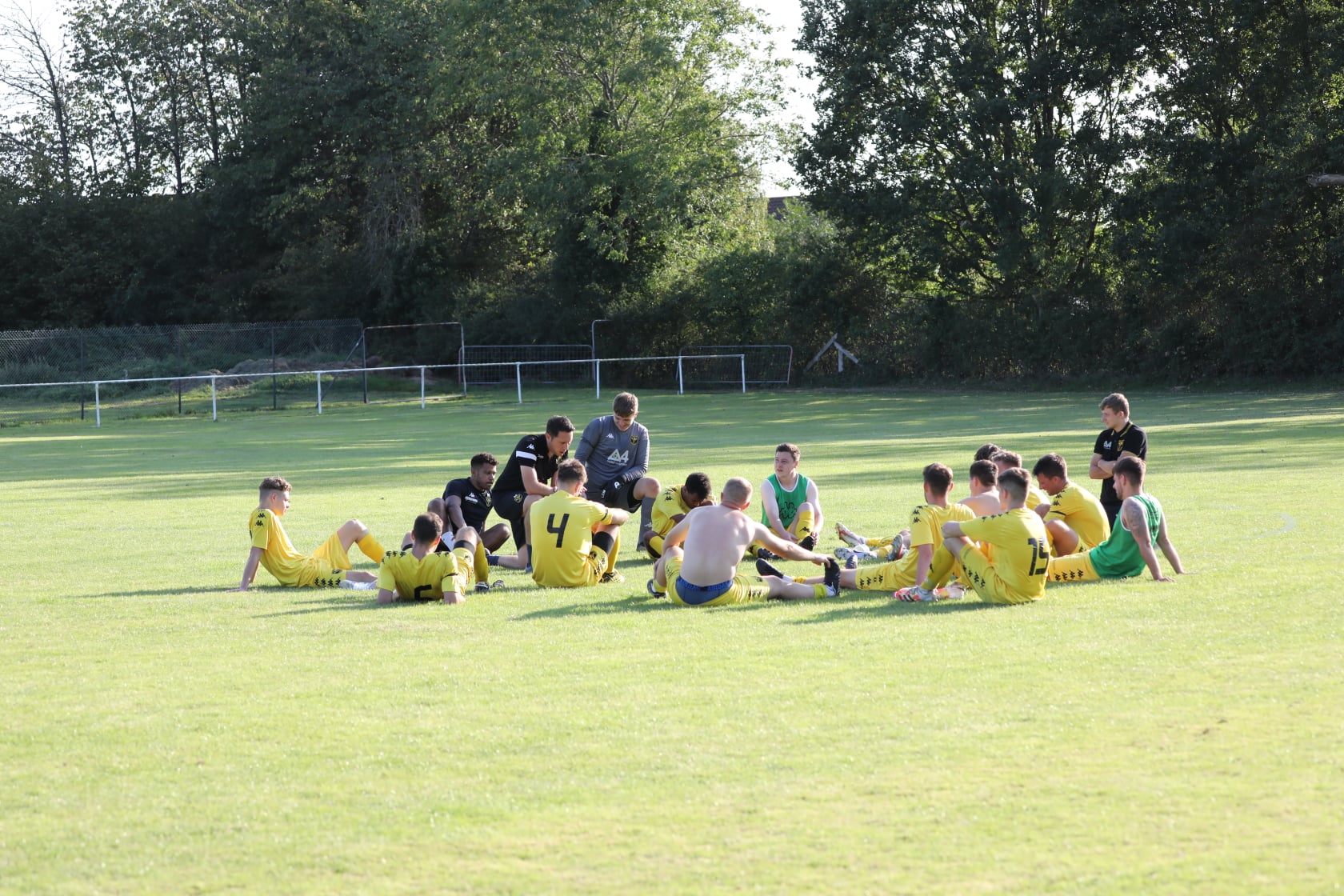The moment arrives just before the game, or even during it, where you as a coach or manager have to provide some sort of information for your players. Every team will have these talks (or we can call them meetings), to deliver, discuss and feedback on certain events.
At any level of football, there has to be some sort of guidance that the players must understand. To summarise on how you could possibly structure your talks and maximise this opportunity, I’ve listed some areas, for you to consider;
Intentions – Before any meeting, you should have an idea of what the outcomes are, that you wish to achieve. If these aren’t clear, then you’re simply guiding your players into a random direction with no clear end goal.
Having the outcomes set, will allow you to describe the process that you may wish to use to get there. These intentions (what) should align with your end goal and the behaviours (how) of your players should contribute.
Structure – The structure of your information should be planned, with considerations on how much you will provide, within a certain situation. If you are working with under 7 players, this will differ to that of senior players. Why? The attention span of a child and adult is obviously huge and the information (verbal/non-verbal) that you provide, could easily overload someones brain. The consequence of this, is that the unconscious brain will go to sleep and the players are consciously questioning what you’re saying.
When planning what you wish to say, maybe consider how much of this is relevant, needed and how many words you use to get the message across. Keep it simple!
Language – It’s half time and your team is losing 2-0. While some players haven’t performed badly, there are 4 or 5 players that need to perform better football actions, to contribute to the team intentions. How do you address this problem within the group? Do you speak to the team first and look at the communication between players, or do you immediately zoom into the players, that in your eyes, aren’t performing well?
While learning more about how you could structure your talks, the language that you use to convey this message, is vitally important.
If you use non-contextual language, then you won’t be describing any of the potential problems that may have been identified, which then leads you into further problems.
Example – If you address the changing room and tell the team that they aren’t sharp enough, then you aren’t describing anything within a football context or even explaining what happened. The consequence here is, that you could have 16 players with 16 interpretations, of what you wanted to convey.
The solution, say what you see and use universal football language. The receiver will then be able to visualise clearly what you’re saying and get closer to executing your request.
Overload – This occurs when there is so much external stimuli, the brain will feel like it can’t cope. What would you do in this situation? Allow your attention to drift away – think about what you’re having for dinner or what you have planned for work next week?
While these suggestions are only a myth, this could well happen in your team talks on a regular basis. The consequence here, could be that your players ‘fall asleep’ and you are merely just talking without saying anything!
As mentioned above, keep the information clear, short and concise. This will allow your players to digest the information, visualise and then, the opportunity to execute what is needed.
Emotions – Everyone has and will have, different emotional responses to situations. This is a type of human behaviour and can often display how someone maybe feeling non-verbally.
You may have heard of a term such as, “in the heat of the moment”, meaning at that given time, things may have got out of control and something happened that wasn’t planned.
Using this term, doesn’t excuse someone from behaving inappropriately and obviously, all actions have a consequence.
If you weren’t happy with a decision, or a behaviour that your players were or are displaying, consider the impact it has on your team intentions and if you can help them align with this. There is no need to shout, swear or even get angry with players, as this then gets personal and massively detracts from what you want to achieve.
To summarise, the conversations I’ve had about team talks in the past, have all been varied. This is your subjective application (how) of the objective reference of what you wish to achieve. Consider what your intentions are and how your going to get there. Structure, language and behaviour can have a huge impact on your messages!


